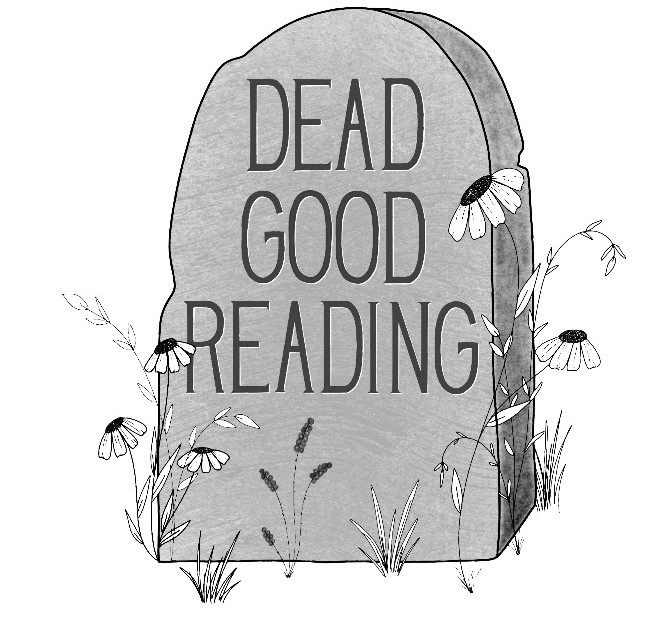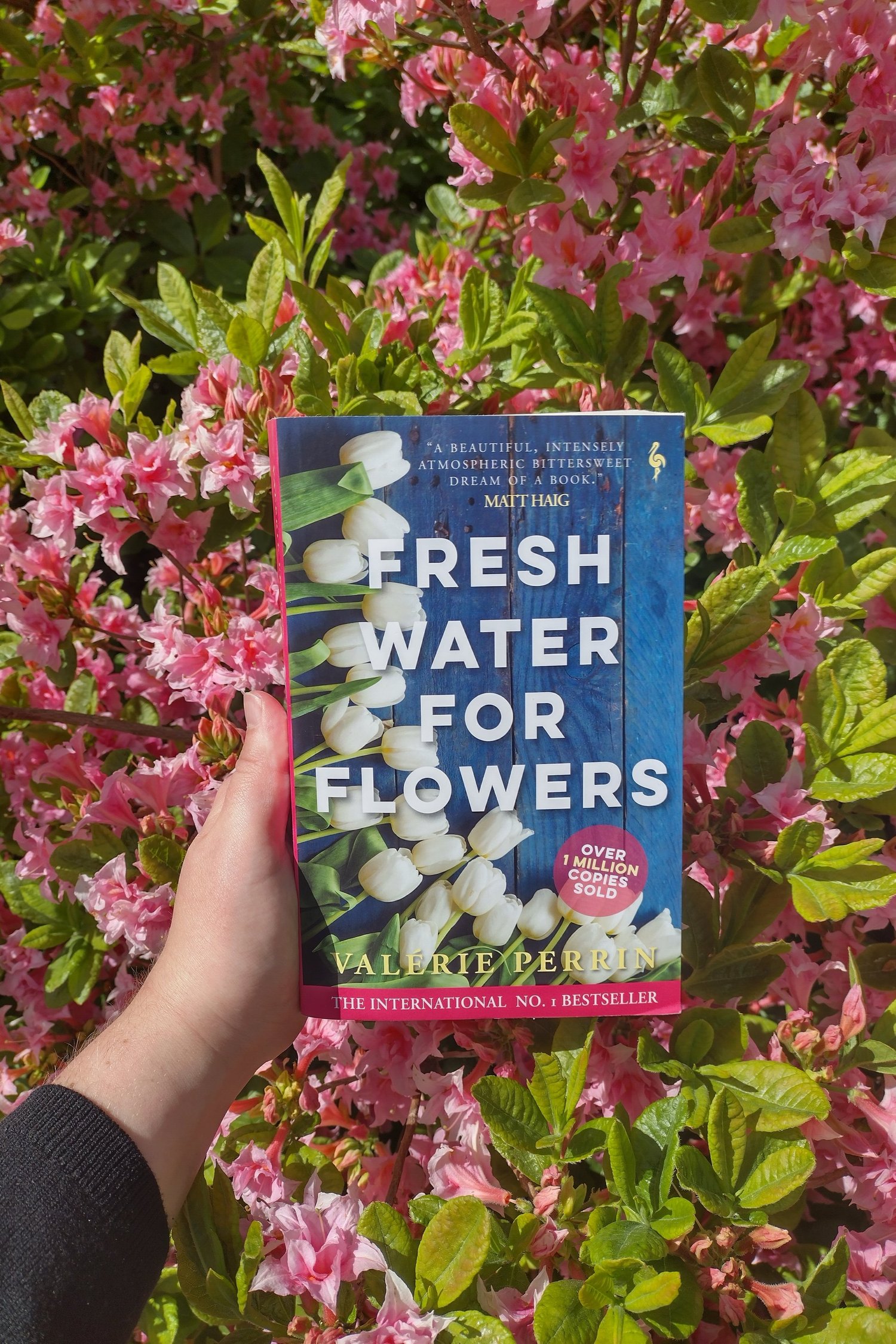This week we look at the novel Fresh Water for Flowers by author Valérie Perrin. Fresh Water for Flowers is described as Perrin’s English debut. I find this phrasing a bit misleading, as to me it implies that she wrote the book in English, but what they mean is that this is her first novel to be translated into the English language. The book was originally published in French as Changer l’eau des fleurs and is translated by Hildegarde Serle.
My cousin translates children’s books from English to Dutch, and I have been trained from a young age to always mention the translator when talking about works that were originally published in another language – do pick me up on it, if I ever omit to do so!
Perrin has created a wonderful, heart-breaking story (Matt Haig calls it ‘atmospheric’ on the front cover, and I feel he stole the word I would have used if he hadn’t done so), and Serle has done an excellent job translating Perrin’s world in English.
In Fresh Water for Flowers we follow Violette Toussaint, who is the caretaker of a cemetery. We accompany her as she interacts with the people visiting the cemetery, cleans tombstones and takes care of the greenery and flowers in the cemetery grounds. She is abandoned by her husband, but seems to live a happy, simple life, revolving around the ebb and flow of the graveyard. She has good relationships with the grave diggers, the funeral director, the vicar, and the visitors. She keeps notes of all the ceremonies and funerals and knows a lot about all the people buried in her cemetery. At the surface, it seems Violette just lives a charming life in a small town in France, which is centred around the cemetery.
Fresh Water for Flowers intimately, and sometimes humorously, describes the running of the cemetery, and offers, albeit fictional, behind-the-scenes of what it is like to work with the dead and buried, day in and day out:
“Once again, Gaston has tumbled into a grave. I can’t count the number of times it’s happened now. Two years ago, during an exhumation, he fell into the coffin on all fours and found himself face down on the bones. ”
— Fresh Water for Flowers. Page: 68.
From the outset Violette’s life appears to be very idyllic and peaceful, but as past and present are alternated, we learn more about Violette and her past. I will not give away any spoilers (which makes talking about this book rather difficult), but her becoming a caretaker of a cemetery is not as straightforward, and her past binds her to this place in a powerful way.
Each chapter starts with an epitaph, or a short phrase commonly found on tombstones. Perhaps they are cenotaphs, a term I was unfamiliar with until reading Perrin’s book but she describes them as follows:
“A cenotaph is a memorial erected over a void. A void left by someone who died at sea, on a mountain, in a plane, or on a natural disaster. A living person who just vanished, but whose death seams indisputable”
— Fresh Water for Flowers. Page: 98.
I always love how novels can teach you new things. I also once learned that Coney Island in New York was originally named Konijn Island or rabibit island by the Dutch. It is little facts like this that often stick with me, even long after I have forgotten the main plot of a book. But I did not just share Perrin’s definition of a cenotaph to tell you about their existence, I shared it as this snippet shows the poetic style in which Perrin writes.
The mix of past and present gives Fresh Water for Flowers a crime novel quality. We increasingly learn more about Violette and her past, and that life stories are never as simple as they appear to be.
I appreciate, I am giving you very little of the plot, as I personally hate reviewers who lay it all out there. Suffice to say, I highly recommend Fresh Water for Flowers as a summer read, and look forward to hearing from other readers how they felt as the story unfolded and the puzzle pieces were fitting together. Fresh Water for Flowers is both a heart-warming and heart-breaking read and I found it very hard to put down.
It is a story about love, about grief, about lives that could have been, and whilst reading I could almost taste the baguettes with salted butter and jam, which I used to consume inn abundance during childhood camping holidays in France.


Leave a Reply